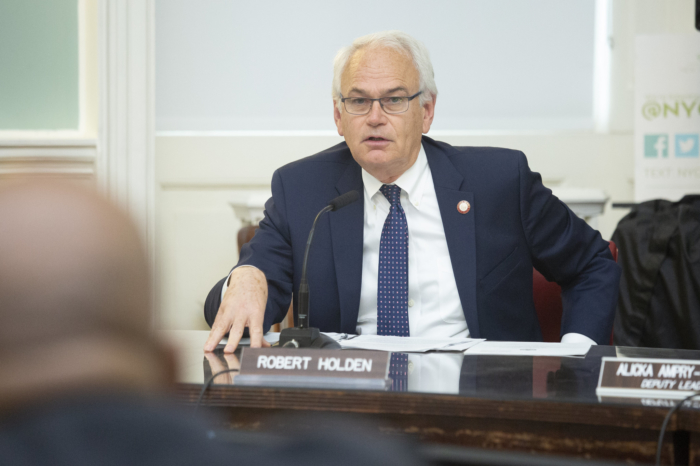BY STATE SENATOR JAMES SANDERS JR.
After a partial government shutdown that lasted 35 days, the longest in history, and left 800,000 federal workers working without pay or on furlough, President Trump finally came to his senses — well, at least temporarily.
He announced late Friday evening, Jan. 25, 2019, that the government would re-open for three weeks. Enough time, he believes, to negotiate with Congressional Democrats and get funding for his proposed wall along the U.S.-Mexico border.
Meanwhile, over the last five weeks affected federal workers many with families to support and children to feed were hurting, and continue to hurt. Though we may not know their names, these people are not strangers. They are our friends and neighbors.
I would venture to say that most of them have never had to go to a food pantry or start a GoFundMe page to support themselves, but following the shutdown, they were alone and frustrated. They had to rely on the kindness of strangers because President Trump had turned his back on them.
Now, the Commander-in-Chief has said these workers will receive their back pay as soon as possible, but who knows how long that will take? Trump says things will go back to normal, at least for three weeks, but what happens after that? We have a stubborn President who put the well-being of his citizens in jeopardy, just so he could get a wall that most Americans don’t even want. A referendum could easily determine that.
President Trump, who has always been a man of means and privilege, doesn’t know the stress and uncertainty of having to live paycheck to paycheck, because if he did, he probably wouldn’t have allowed the government shutdown to happen in the first place.
Those affected by the government shutdown included agents from the Federal Bureau of Investigations (FBI), Bureau of Alcohol, Tobacco, Firearms and Explosives (ATF), Drug Enforcement Agency (DEA) and U.S. Customs and Border Protection (CBP), as well as staff from the State Department, Coast Guard, IRS, Department of Homeland Security, NASA, the State Department, the National Park Service, the Forest Service, the Transportation Department, and the Department of Housing and Urban Development.
I wanted to help these hardworking men and women who serve our nation because they should not be punished, or left struggling to support themselves and their families over Trump’s feud with Congress, so I started a collection drive to help. The shutdown may be over, temporarily, but our collection drive and distribution of essential items will continue until a solid and permanent solution is reached regarding this whole mess.
Here in New York City, prior to the announcement of the temporary re-opening of the government, Mayor Bill de Blasio said we are “entering a full-blown crisis.” He explained that the city can’t replace the loss of federal funding and in a few months it would run out of money. That federal funding pays for programs like the Supplemental Nutrition Assistance Program (SNAP), and that means people would go hungry. The strain on city resources would also force cutbacks to the School Lunch Program. Disaster averted – at least for three weeks.
My office is collecting donations of non-perishable food, toiletries along with baby formula, diapers, and other childcare items for affected federal workers. Items can be dropped off at my District Office, located at 142-01 Rockaway Boulevard in South Ozone Park, Monday – Friday, between 9 a.m. – 5 p.m. Those seeking to receive items must present a valid, current, federal ID from one of the agencies impacted by the government shutdown.

































